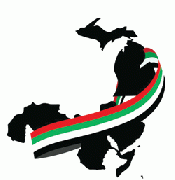Documentary premieres at gala event; gets mixed reviews
Since the premiere of the documentary “Our Arab American Story,” shown in Novi last week, producer Keith Famie said he’s gotten mostly positive feedback from those who watched it. The film was shown at the Rock Financial Showplace during “Flavors of the Arab World,” a festival of food, music, dance and fashion from the Arab World, sponsored by Steve Sabina and Toni Wisne Sabina, Chef Habib Bazzi of the Bint Jebail Cultural Center and Yasmeen Bakery. More than 500 people attended the gala.
“Our Arab American Story” is scheduled to air on WXYV TV Channel 7 on Saturday, Dec. 15 at 7 p.m. “Of course, you can’t make everybody happy,” Famie said about some who criticized details, or hoped to see themselves and their organizations featured more prominently in the film. He said that while the Novi premiere banquet, which featured music, dance, art and fashion displays, was put together for the Arab American community, the film itself was not made for Arab Americans. For each installment of the “Our Story” series of documentaries on Detroit ethnic communities, Famie said the intention was to reach those who are on the outside looking in. “It’s not for you. It’s for the viewer out there who doesn’t have an understanding and needs insight into the ethnic culture,” he said. Had the producer been an Arab American, Famie said, he or she probably would not have asked the “silly, blatant” questions that, as a non-Arab, he brought to those he interviewed. He said that Arab Americans take for granted many of the questions that the average American has, and that the film brings to light many of those aspects. The most common reactions to the film that Famie said he’s heard from non-Arabs were that they “didn’t know there are Arab Christians,” and “had no idea how 9-11 affected the community.” One long segment in the film featured prominent surgeon Dr. Marwan Abouljoud, of Grosse Pointe Park, whose story went beyond his ethnicity and focused on his medical practice. In each of the documentaries, Famie said he tries to take one of the many stories told and dig into it for viewers to latch onto. Abouljoud’s segment includes commentary from some of his non-Arab patients, and scenes from a trip to Lebanon where he visited his ailing, elderly father. Famie said it was particularly moving that Abouljoud saves many lives, but couldn’t save his father, who died three days after the premiere on Wednesday, December 5, 2007. Hashim Al-Tawil, an art history professor who has taught Arab American cultural history at the University of Michigan–Dearborn, described the film as “a good beginning for documenting the experience of the Arab American community.” Al-Tawil, who was himself featured briefly in the documentary, said that though he thought it was well done, it could have included more historical detail, and failed to mention Chaldeans, Maronites, Copts, Assyrians and Mandaeans. He said the producers could have better chosen some of the people to talk about some of the subjects, like religion, but that “maybe the director wanted to show the opinion of the average person on the street.” “It’s a good start. It’s a good work. There’s nothing perfect,” Al-Tawil said. He said he looks forward to more like it, and sees it as a potential spark for a young generation of film makers to take on similar projects. “This will be an incentive for them to do something in the same line.” Famie said that early on in the production of the film, he recognized both the importance and the complexity of telling the Arab American story. The widespread diversity in the community and its mass of contributions to the region and the country made it a particularly demanding project. “This was a very complicated one,” Famie said. “It was intense.” Unlike the Italian, Polish and Greek communities previously documented in the series, there is no one country, but 22, that the Arab American story revolve around. Chris Kassel, the writer on the Visionalist Entertainment crew that produced the films, said he hopes to be able to do more documentaries to dig deeper into Arab America. “We understand that we haven’t even scratched the surface of contributions that Arab Americans have made.” He said future films would delve into more intense, complete profiles of the community and its subcultures, possibly pursuing each different country as a subject. “We’ve fallen in love with Arab Detroit.” Famie said the film is expected to be released on DVD in the coming months, with an extra two hours of footage providing in- depth profiles of each prominent figure interviewed. “Our Greek Story” is scheduled for broadcast on the same station at 7 p.m. on Saturday, Dec. 8. Visionalist Entertainment is currently filming the Japanese American and Jewish American stories.






Leave a Reply